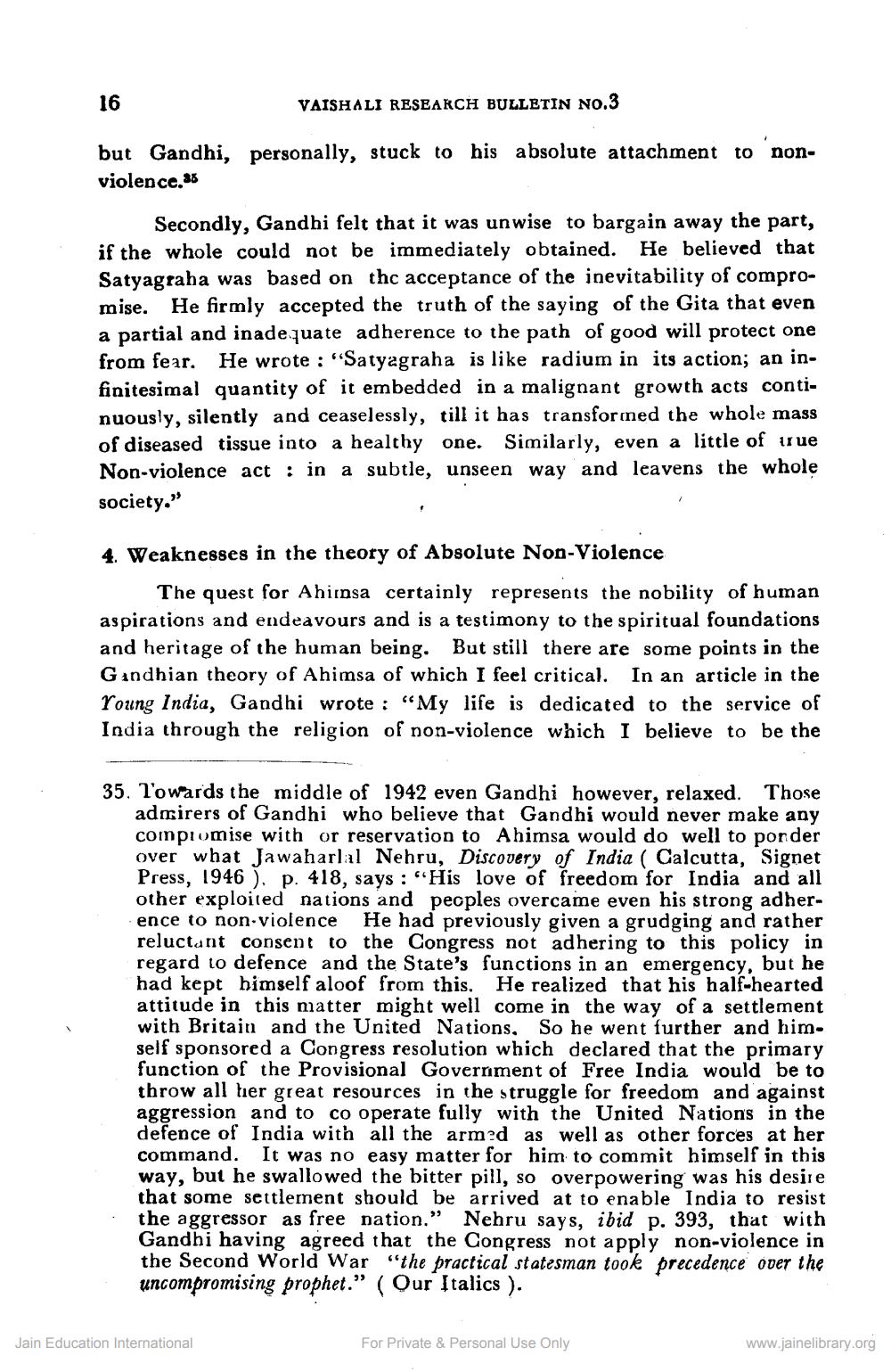________________
16
VAISHALI RESEARCH BULLETIN NO.3
but Gandhi, personally, stuck to his absolute attachment to nonviolence.85
Secondly, Gandhi felt that it was unwise to bargain away the part, if the whole could not be immediately obtained. He believed that Satyagraha was based on thc acceptance of the inevitability of compromise. He firmly accepted the truth of the saying of the Gita that even a partial and inadequate adherence to the path of good will protect one from fear. He wrote : "Satyagraha is like radium in its action; an infinitesimal quantity of it embedded in a malignant growth acts continuously, silently and ceaselessly, till it has transformed the whole mass of diseased tissue into a healthy one. Similarly, even a little of uue Non-violence act: in a subtle, unseen way and leavens the whole society."
4. Weaknesses in the theory of Absolute Non-Violence
The quest for Ahinsa certainly represents the nobility of human aspirations and endeavours and is a testimony to the spiritual foundations and heritage of the human being. But still there are some points in the Gandhian theory of Ahimsa of which I feel critical. In an article in the Young India, Gandhi wrote: “My life is dedicated to the service of India through the religion of non-violence which I believe to be the
35. Towards the middle of 1942 even Gandhi however, relaxed. Those
admirers of Gandhi who believe that Gandhi would never make any compromise with or reservation to Ahimsa would do well to porder over what Jawaharlal Nehru, Discovery of India ( Calcutta, Signet Press, 1946). p. 418, says: "His love of freedom for India and all other exploited nations and peoples overcame even his strong adherence to non-violence He had previously given a grudging and rather reluctant consent to the Congress not adhering to this policy in regard to defence and the State's functions in an emergency, but he had kept himself aloof from this. He realized that his half-hearted attitude in this matter might well come in the way of a settlement with Britain and the United Nations. So he went further and himself sponsored a Congress resolution which declared that the primary function of the Provisional Government of Free India would be to throw all her great resources in the struggle for freedom and against aggression and to co operate fully with the United Nations in the defence of India with all the arm:d as well as other forces at her command. It was no easy matter for him to commit himself in this way, but he swallowed the bitter pill, so overpowering was his desire that some settlement should be arrived at to enable India to resist the aggressor as free nation.” Nehru says, ibid p. 393, that with Gandhi having agreed that the Congress not apply non-violence in the Second World War "the practical statesman tooke precedence over the uncompromising prophet.” ( Our Italics ).
Jain Education International
For Private & Personal Use Only
www.jainelibrary.org




